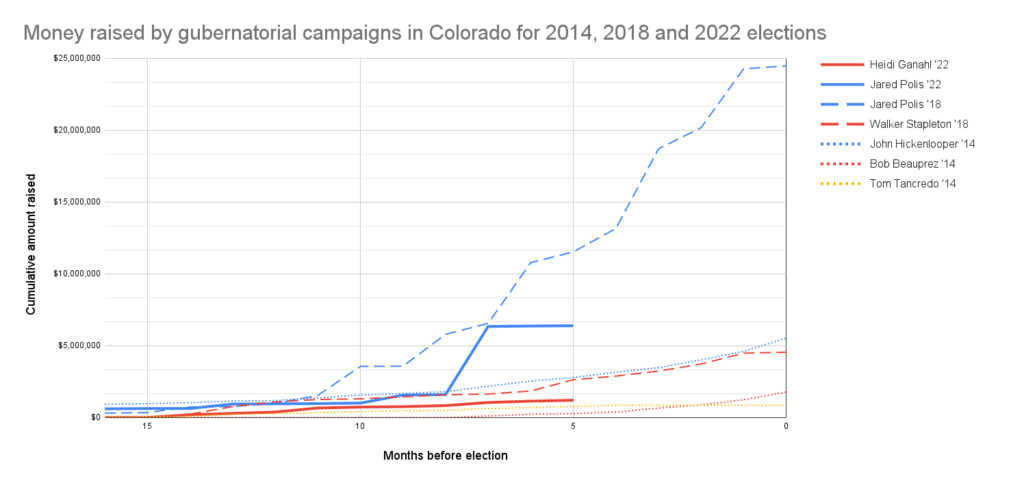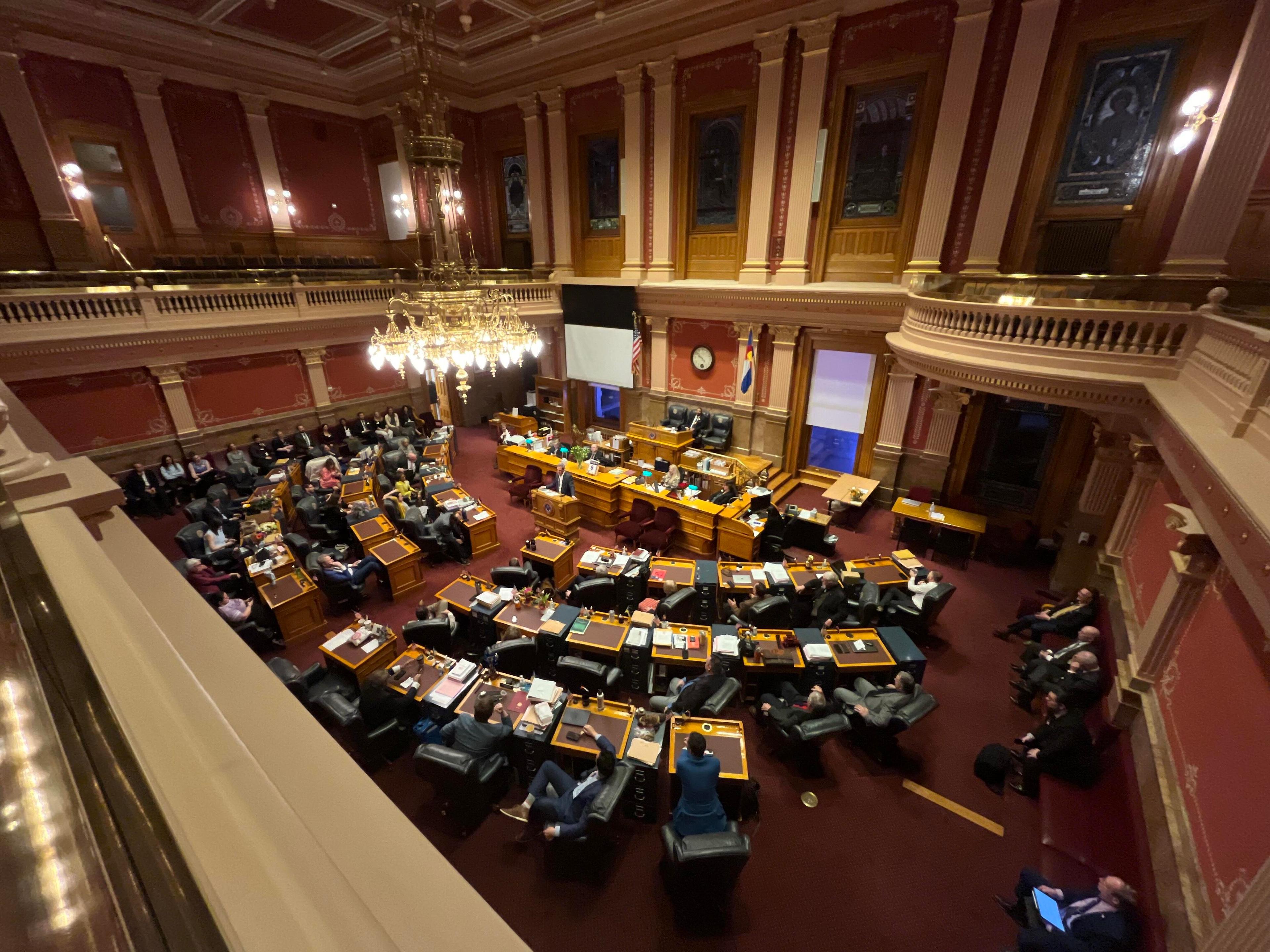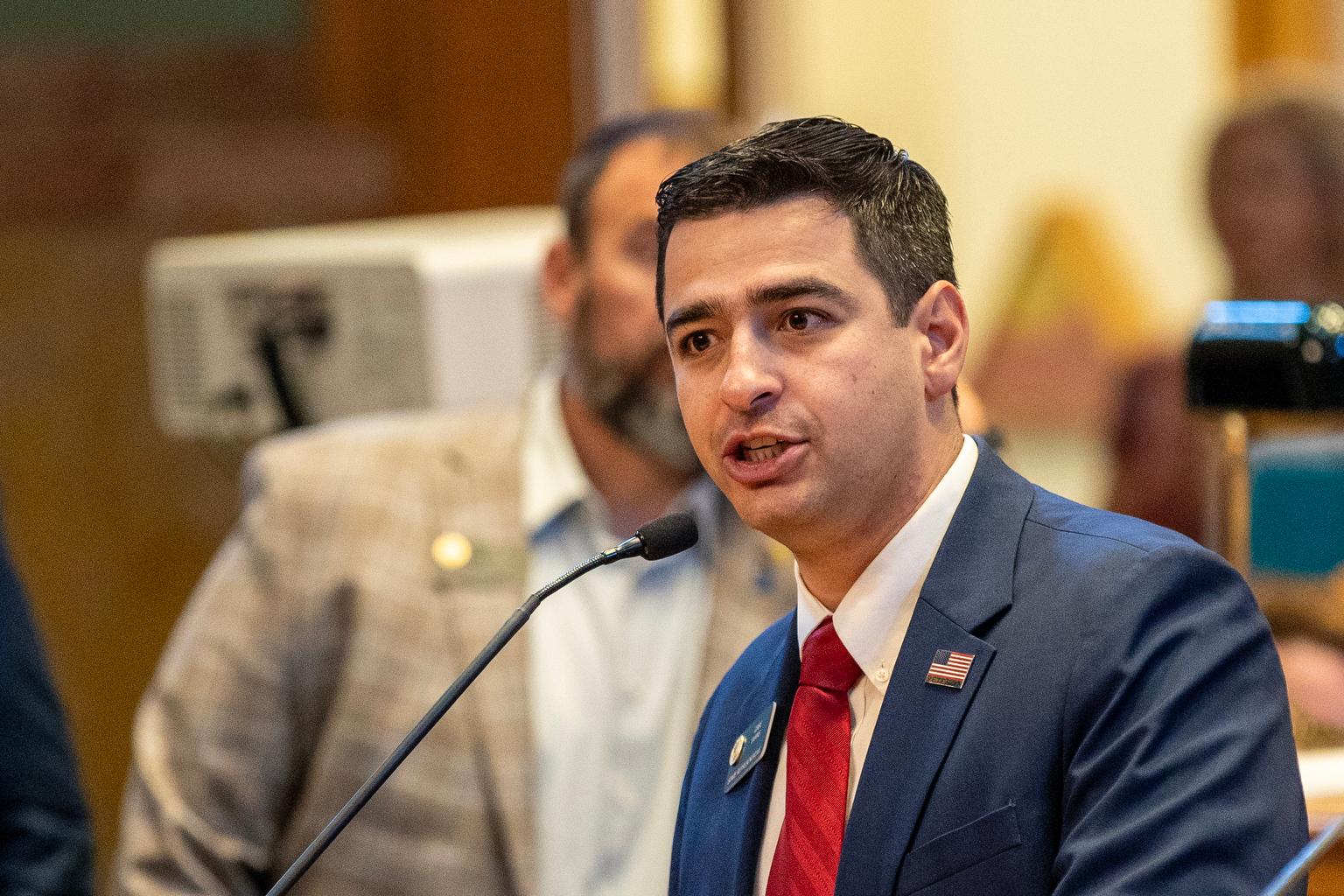
Republicans hope a red wave will help them recapture some of Colorado’s elected offices this November, but they’re beginning the general election season with at least one disadvantage: money.
In the U.S. Senate race, Republican candidate Joe O’Dea has raised about $2.3 million so far, compared to more than $13 million for Democratic incumbent Michael Bennet, according to campaign finance reports.
It’s a similar ratio in the governor’s race, where Republican challenger Heidi Ganahl has only about a sixth of the campaign contributions of Gov. Jared Polis.
And both of the Republican candidates are trailing behind the pace of fundraising set by Republican hopefuls in these races in earlier years.

But those numbers could change
But these early figures only capture part of the picture, for a few reasons. One is that the campaigns are just getting started, and they’ll likely see a sharp increase in contributions in the coming months.
“It’s very difficult to draw any conclusions early,” said Rob Witwer, a former Republican lawmaker and political analyst.
Filings from before the primary showed O’Dea had raised under a million dollars between April and the first week of June. This week his campaign announced fundraising totals for the entire quarter that showed O’Dea raising another million in recent weeks.
Another big factor: Outside groups are likely to put millions into “independent” or “soft side” expenditures as the race picks up. This money is spent directly on ads and other material, rather than being given to the campaigns, and the outside groups can not coordinate with the candidates. Often, those outside groups will conduct polls over the summer before deciding which states and races to focus on.
“If serious money starts being spent here by independent conservative groups, then you know that their polling shows the race is in play,” Witwer said.In fact, some of that money has already appeared: Democratic groups spent millions on the Republican primaries in an unsuccessful effort to change the outcome.
Their implicit aim was to support far-right candidates who would theoretically be weaker in the general election, but voters instead chose establishment Republicans who are seen as more competitive.
Where will the money come from?
Scott Martinez is a Democratic campaign finance attorney. He thinks that most of the outside spending will target the Senate race, where Republicans hope to use President Joe Biden’s unpopularity to drag down Bennet.
“This is national politics, and there are lots of national players outside of Colorado who want to influence the outcome of the election,” Martinez said.
It could be a different story in the governor’s race. Because the position won’t affect the federal balance of power, the race is likely to draw less attention from the highest-powered national groups. But groups focused on single issues, such as abortion, still may spend to support Polis or Ganahl, Martinez said.
There’s a final major element, too. Most of the statewide candidates are independently wealthy, with the ability to significantly self-fund their campaigns.
Polis is by far the wealthiest, having sold a series of companies in deals totaling hundreds of millions, but O’Dea and Ganahl are business owners as well. They could pour hundreds of thousands or even millions more of their own dollars on the race in the four months ahead.
CPR News intern Will Cornelius contributed to this report.









